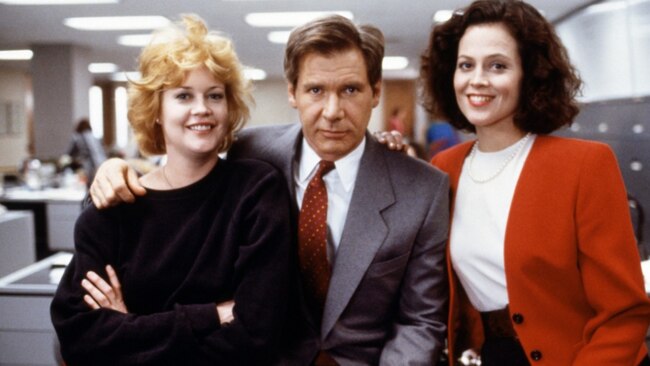Managing your peers when you get promoted
Your colleagues are your competitors and could wind up being your boss. Here’s how to manage them as you battle for the top.

Your colleagues are your competitors and could wind up being your boss. Here’s how to manage them as you battle for the top.
Just after finishing law school, I started a clerkship at a firm. There were seven of us from around the country; we worked long hours and were inseparable outside of work. Bonded by our entry-level rank and modest budget, we had lunch together daily. After work, we commiserated at the local dive bar.
Underlying these relationships simmered a darker reality. We knew that at the end of 10 weeks only three or four of us would be offered a job. We were colleagues – and competitors.
These kinds of stressful situations are common with peer working relationships and grow exponentially in risk and complexity as you near the C-suite. They are both a conundrum and a paradox. The people you need to collaborate with to get your work done and who affect your satisfaction and joy at work are also your competitors in a game of Survivor.
The fact is, the workplace is one of the few environments where we are forced into relationships. We must work together amiably and effectively to achieve organisational goals. And if we’re ambitious or stay at an organisation long enough, eventually most peers become our bosses or our subordinates.
So how can we effectively navigate these potentially messy – and critically important – relationships?
Don't expect friendship
Several years ago, a peer and I were aiming for different senior vice-president roles in the same department. I considered her a friend. We’d had lunch together for years, had shared parenting issues, had been publicly lauded as top 20 performers in the company the year before, and we were navigating a reorganisation with a new C-suite boss. I hadn’t naturally warmed to our new boss, but my colleague clearly had become visibly favoured. On our way to yoga class, seeking guidance, I confided, “I’m having a hard time building a relationship with our new boss.” She smiled widely, said “I don’t know why; I think she’s terrific!” and made it clear the conversation was over and not to be revisited.

That exchange and subsequent interactions indicated that she was not going to risk her new status to help me. That was the end of the work friendship, and after biding my time for a year I left for an executive role at another company.
While it’s important to establish cordial working relationships, there’s a limit to how much emotional bonding is healthy as you climb the corporate ladder. Keep it friendly but maintain boundaries. Oversharing personal information (such as religious or political beliefs) can cause conflict in the relationship, leading to awkwardness and impacting effectiveness at work. Don’t look to work as a place to have your core emotional needs met; invest in relationships and organisations you care about outside your company.
Manage sideways
When you’re being considered for the senior-most executive ranks, leaders will go to your peers and ask for their views. It’s often an informal dialogue, generally not acknowledged as part of the formal performance review process.
But with our peers we don’t always “manage up” or act on our best behaviour as we might with our boss or direct reports. Our peers are therefore the likeliest group to experience, observe and know our weaknesses. “Peers have the best read on you – and are the harshest critics, since they are at your level,” John Horton, an organisational psychologist, told me. Through his years of experience conducting workplace assessments, he has found we’re most likely to exhibit derailing leadership behaviours to our peers.
This aligns with my own experience conducting 360 reviews for clients. For example, one of my clients – despite her top numbers in sales – was being blocked from an executive role because of negative feedback from peers. It took thorough feedback interviews, six months of coaching and the development of a perception management strategy to undo the damage, and she finally received the promotion she deserved.
To understand your impact on your peers, ask them. Make time to check in regularly and find out how you and your team’s actions are affecting the achievement of their goals. Find common ground to support them and activate the norm of reciprocity – the concept that people help those who help them. Making peer inquiry a routine habit can surface opportunities and issues early, giving you a chance to cement the relationship and correct course if necessary.
Sometimes simply affirming others does the trick. One of my clients was struggling with a key peer who would barely acknowledge him. Working together, we agreed he would find something worthy that this colleague put forward in each executive meeting and visibly agree through commenting or body language. After a few months, his peer asked him out for coffee to get to know him better and that kicked off a workable relationship.
Hone your political skills
Peers serve critical information purposes – they often possess valuable knowledge that can alert you about what’s happening in the organisation and why.
But as Jeffrey Pfeffer, Stanford University professor and renowned authority on organisational power, told me, peer relationships are “a mixed-motive game”. Bluntly put, “the best, most politically effective peers will be able to successfully hide their true agendas and actions. So the first thing one needs to do with peers is, to the extent possible, find out what they are up to,” he says.

When I served on the executive team at one company, my colleague who was our chief human resources officer was always tight-lipped about everything, sharing with her peers only information that was absolutely necessary. You never really knew what she was up to or whether she truly supported your initiatives. She was tightly aligned with our president, however, and made sure his objectives were executed. It paid off – when he suddenly left to become chief executive of a larger, more prestigious company, he took her with him to lead human resources.
To ensure you’re not left behind, candidly evaluate the behaviours that are rewarded in your organisation. Examine who gets promoted and why. Be strategic and broker partnerships with colleagues who are in favour, finding common ground for advancing mutually beneficial agendas. In a sharp-elbows culture, you may need to be more guarded.
It’s also advantageous to manage your emotions and cultivate a poker face. According to Pfeffer, “Getting along, let alone being successful in the world, often requires a large amount of inauthenticity and self-regulation.” As you approach senior levels of the organisation, you often can’t indulge emotions such as irritation, anger or fatigue without running the risk of affecting morale, being misinterpreted or damaging relationships.
Executive leadership relies heavily, if informally, on peer perceptions of you for promotional opportunities – whether they are fair and accurate or not. Ambitious professionals will heed the strategies shared above for navigating these complex relationships as they ascend to the C-suite.
-
Amii Barnard-Bahn is a former Fortune Global 50 executive, consultant and speaker who specialises in accelerating the success of leaders and their teams.


